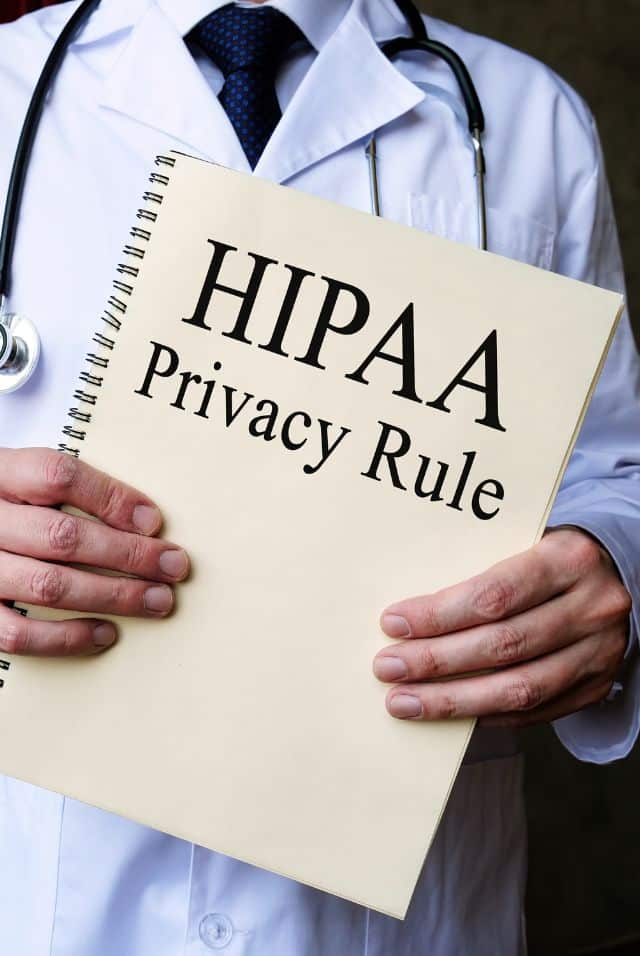HIPAA Medical Records Release Laws – Overview
HIPAA medical records release laws compliance is extremely important for medical practitioners and storage software developers alike.
Non-compliance with HIPAA can result in civil and criminal penalties, but jail time is reserved for criminal violations involving intentional misuse or disclosure of PHI.
HIPAA is a federal law that sets a minimum standard for privacy and security of health information. State laws can provide more stringent protections, but HIPAA does not vary by state.
In this article, we shall take a closer look at the HIPAA medical records release laws.
What are HIPAA Regulations for Medical Records Release Laws?

HIPAA is an ongoing regulation and every healthcare organization and healthcare services provider needs to comply with these laws.
These laws have been designed to ensure the security, integrity and privacy of protected health information (PHI).
HIPAA laws regarding medical records are meant to ensure mandatory data storage and release policies which are to be followed by healthcare institutions and healthcare providers.
HIPAA provides a national standard for protecting health information. While stringent, it operates alongside other federal and state regulations that may also impose strict requirements.
HIPAA is a federal law so it is governed by the Department of Health and Human Services (HHS).
HIPAA was created as a regulatory standard for the healthcare industry.
This law is enforced by the Office for Civil Rights (OCR). The OCR is responsible for providing continuous guidance to develop influential healthcare. The OCR also has the authority to investigate cases of HIPAA violations.
See Also: How to Get My Medical Records Online
What is Protected Health Information (PHI)?
PHI, short for Protected Health Information, is an umbrella term used to denote a patient’s identifiable information (PII).
A PII may include the patient’s name, age, address, sex, and other health-related data, which is usually collected and stored by medical practitioners with the help of special data storage software systems.
Such patient information is stored as confidential medical records with third-party service providers, such as insurance and billing companies.
So, for instance, if a patient is diagnosed with obsessive-compulsive disorder (OCD) then the patient’s information is protected health information (PHI) as it contains the patient’s PII details.
Hence, the patient’s PHI is protected by the HIPAA records retention laws.
ePHI (Electronically Protected Health Information) refers to the PHI that is shared, stored and accessed electronically, for instance, any medical record stored on computer software or platform.
The HIPAA Security Rule governs all electronically stored PHI data. This rule governs the ever-changing medical records storage software industry.
What happens when HIPAA Medical Records Release Laws are violated?
As PHI data is extremely sensitive and confidential, HIPAA compliance is strictly enforced. Any violation of HIPAA laws can result in hefty fines and significant penalties.
These strict penalties are in place to ensure that healthcare providers, hospitals and software developers comply completely with HIPAA laws.
These penalties are usually enforced on a tiered basis, depending on the severity, frequency and knowledge of non-compliance.
The maximum penalty for HIPAA violations can reach up to $1,650,300 per year for violations of an identical provision.
The Office for Civil Rights (OCR) can impose penalties for non-compliance with HIPAA rules, regardless of whether a data breach has occurred, based on the nature of the compliance failure.
Such fines are usually imposed for lack of sufficient security measures, trained employees, or failure of healthcare practitioners or institutes to acquire a Business Associate Agreement (BAA) with third-party service providers.
Are There Different HIPAA Laws in the Different States?
Yes, the HIPAA regulations are federal laws and still, you may find slight differences in the law when comparing two different states.
Still, HIPAA remains one of the most comprehensive and effective documents which deals with the secure collection, retention and release of Protected Health Information (PHI).
To learn the specific HIPAA laws for your state, you can visit the state-specific organization responsible for enforcing HIPAA laws.
Conclusion
It is important for all health care providers, health care organizations and medical record storage service providers to know and comply completely with their state-specific HIPAA rules and regulations.
This is an essential step to ensure that confidential medical and personal details are stored and shared with responsibility, in lieu of significant fines and penalties for non-compliant activities.
See Also
Best Medical Malpractice Law Firms
Can You Prescribe for Yourself?
California Medical Debt Collection Laws
Self-Prescribing Laws by State
Malpractice Insurance for Nurses